Adatok
tündér ilona
0 bejegyzést írt és 98 hozzászólása volt az általa látogatott blogokban.
Örülünk, Vincent?
John Lukacs volt az utolsó, aki megszólalhatott volna (szomorúposzt)
2019.06.03 21:37:39

John Lukacs volt az utolsó, a kormánnyal beszélőviszonyban lévő, jelentős magyar humánértelmiségi (nem szeretem a "humánértelmiségi" szót, ritka hülyén hangzik, de így elkerülhetők a definíciós viták). John Lukacs jelentős történész volt, a Five Days in London pedig világhírűvé vált. John…..

Ungváry Krisztián új perspektívába helyezte a II. világháborút. Végre nem kell bajlódni a kínos előzményekkel.
A Hír TV április 24-ei esti adásában egy asztalhoz ültették Ungváry Krisztián történészt és a Magyarországon élő, oroszországi csecsen üzletembert Magomed Daszajevet, aki a műsorvezető…..
tündér ilona
2017.04.26 18:34:47
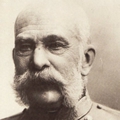
Tulajdonképpen mi még az idegengyűlölethez is teljesen hülyék vagyunk. Bemondta a tévé, a rádió, ki volt szépen plakátolva, sőt még személyesen a miniszterelnök is…..

Az amerikai Legfelsőbb Bíróság döntésének indoklása megnyitja az utat a poligámia törvényesítése előtt – állítja a Politico magazin. A többségi álláspontot megfogalmazó bírák szerint a "kormányzatnak el kell ismernie a magánszemélyek egymás iránti szeretetét,…..
tündér ilona
2015.06.27 15:30:39
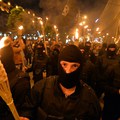
Az ATV híradójának tálalásában egyszerű nacionalistákként jellemezték a banderisták utódait, akik Hitler ukrajnai tömeggyilkosait tekintik példaképeiknek.
Az ukrajnai banderisták fáklyás felvonulását így konferálta fel az ATV január 2-ai, 21 óra előtti híradójában…..
tündér ilona
2015.01.03 13:57:32
Sztepan Andrijovics Bandera személye csöppet komplikáltabb annál, mint ahogy azt Kedves K. D. Lajos, itt leírod. Ld. pl. Sz. Bíró Zoltán idézetet. stb.
Az egész Ukrán, Lengyel, Orosz viszony még sokkal komplikáltabb. Kérlek olvasd el ezt is, tágasabb lesz tőle szemhatárod: wangfolyo.blogspot.hu/2009/09/breszt-nemet-szovjet-katonai-parade.html
Az egész Ukrán, Lengyel, Orosz viszony még sokkal komplikáltabb. Kérlek olvasd el ezt is, tágasabb lesz tőle szemhatárod: wangfolyo.blogspot.hu/2009/09/breszt-nemet-szovjet-katonai-parade.html

A kormány ki akar szúrni a szegényekkel és a romákkal a balos félelmek szerint, amelyeket többek között arra alapoznak, hogy Balog Zoltánéknak elege lett a szegregáció-ellenes kommandóból és abból a nézőpontból, ami minden rossz gyökerét kizárólag a szegregációban véli…..
tündér ilona
2014.12.13 23:48:45
tündér ilona
2014.12.13 23:49:39
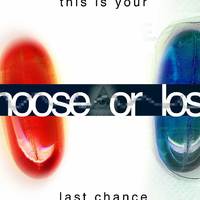
Meg szeretném köszönni Ungváry Rudolfnak, hogy röviden megemlékezett rólam azok között, akiket még be kellene vonni (gondolom, leginkább az általam elnökölt Polgári Konzervatív Párttal együtt) egy szélesebb ellenzéki összefogásba. Igazán kedves gesztus volt tőle.
Megragadom…..
Tegnap zajlott Erdélyben a Székelyek Nagy Menetelése. A megmozdulás régen nem látott egységet teremtett a romániai magyar szervezetek között: gyakorlatilag mindegyikük támogatta a demonstrációt. Budapesten, Pozsonyban és több magyarországi városban is voltak…..
tündér ilona
2013.10.28 17:18:36

Szerdán Áder János bejelentette, hogy aláírja az Alaptörvény negyedik módosítását, és hogy alkotmányos kötelezettsége ezt tenni, ha tetszik neki, ha nem. Mint mondta, kötelessége minden állampolgárnak betartani a hatályos törvényeket, így neki is eszerint kell eljárnia, akár…..

Körösényi András a Kommentár 2007/4-es számában publikálta "A jobboldal elhúzódó válsága" című írását. Ez a szöveg, ebben a pillanatban, nem elérhető. Valamennyi számot megtaláltam a Kommentár archívumában, ezt valahogy nem, noha nem is olyan régen még…..

"Eljött az a pillanat, amire nem hogy nem vártam soha, de igazán még fogadni sem mertem volna rá, hogy eljön valaha: távozom az Index szerkesztőségéből. Közismerten vonzódom az új kihívásokhoz, már pendelyes koromban is új kihívásokkal játszottam a porban. Az…..
Konzervatórium
Londoni zavargások: a multikulturalizmus kultúramentes kereteket jelent
2011.08.24 07:43:00

A márkás és menő cuccokért vívott forradalom már megért a Konzervatóriumon egy posztot, amely fontos kérdésekre irányította rá a figyelmet, talán leginkább a fogyasztói világ legaljaként vagy végállomásaként mutatva be az „agyatlan forradalmat”. Van egy-két pont,…..
tündér ilona
2011.08.24 17:45:31
Itt egy másféle szemüveg a hétfői The Independent interjúja:
Peter Ackroyd: 'Rioting has been a London tradition for centuries'
www.independent.co.uk/news/people/profiles/peter-ackroyd-rioting-has-been-a-london-tradition-for-centuries-2341673.html
The Independent
Monday, 22 August 2011
The Monday Interview: The capital's greatest chronicler tells Andy McSmith why upsurges of violence are part of the city's texture.
Peter Ackroyd is the greatest living chronicler of London, particularly its seamy, violent underside. In an age when historians and novelists are encouraged to be pundits and personalities, you would think he would be in demand after recent troubles.
But for 24-hour news, Ackroyd is a wash-out. The author of mighty studies of both London and of the River Thames has a watching-paint-dry view of history. He is struck how slowly and imperceptibly real history unfolds, and intrigued by the aspects of human life that endure for centuries. The rest, by and large, is stuff that happens.
Speaking in a book-lined office near King's Cross, London, within walking distance of where the rioting began, Mr Ackroyd resolutely refused to see a new epoch dawning. "I can't get at all worked up about these most recent phenomena," he said. "They simply show a pattern of activity in the city that will endure as long as the city itself endures.
"I don't like those commentators who keep on saying that London will never be the same again. London is always the same again. I remember those comments were made very loudly after the [July 2005] terrorist attacks – 'London will never be the same again, London has lost its innocence' – it was all nonsense. London was exactly the same again the following day. "Rioting has always been a London tradition. It has been since the early Middle Ages. There's hardly a spate of years that goes by without violent rioting of one kind or another. They happen so frequently that they are almost part of London's texture. The difference is that in the past the violence was more ferocious, and the penalties were more ferocious – in most cases, death."
I ask, then, what he makes of the much-quoted comments of his fellow historian, David Starkey, and am met with a blank look. He is not aware that Starkey has spoken out on anything recently. I paraphrase Starkey's now infamous remarks about young whites becoming black, and am cut short by a snort.
"Oh well, that's often been the complaint, that immigrants ..." Here he interrupted himself. "They're not even immigrants, are they? They're born English!" Another snort. "I don't really have anything to say to that because it doesn't strike me as particularly relevant."
What does strike him as relevant is what some of the famous Londoners whose lives he has chronicled would have thought of the riots.
"William Blake would have joined them, probably. He loved any occasion for action. Mr Eliot – TS Eliot – would have been rather horrified and had another drink.
"Thomas More would have actively tried to quell them because he was once an undersheriff of London, in fact one of those who had to quell the Evil May Day riots [of 1517], which were set up by the apprentices, which caused much more damage than these ones recently.
"Dickens would treat it all as a great national epic. Barnaby Rudge of course is based on the [1780] Gordon Riots in London. He turned it into a sort of imbroglio of blood and fire and sentimentality. I don't know what Pepys's reaction would have been: probably wide-eyed wonderment, breathlessly descriptive prose."
Practically the only thing that does not interest him about London – which he has described as a "harsh city, a dark city based upon money and upon power, and upon the sacrifice of its citizens in the cause of capitalism" – is the impending mayoral contest between Boris Johnson and Ken Livingstone. "They don't interest me at all", was all he had to say.
Ackroyd seems to have been writing forever. He was a bright boy off a working-class estate in east London, raised by his mother and grandmother after his father disappeared from the family home. He read English at Clare College Cambridge, did a postgraduate course at Yale, and became literary editor of The Spectator at the age of 22. In the mid-1980s, he left to take up full-time writing, buttressed by the success of his novel Hawksmoor and his biography of TS Eliot.
At a personal level, he is about as far from being a television personality in the David Starkey/ Will Self mould as you could imagine. Picture Captain Mainwaring of Dad's Army with receding snow-white hair and you have an approximate representation of one of our most renowned contemporary authors. He looks very like a man with a nine to five office job. And in a sense, he is. He maintains a rigid work discipline, travelling from his Knightsbridge home to start writing in his office at 10am. He is working on three books concurrently. In the morning he writes 1,000 words – 500 on history, 500 on the life of Charlie Chaplin, to be published in 2014. The afternoon is for research, rounded off by 200-250 words of his latest novel, Three Brothers. He leaves the office at 6pm. He boasts that in his long career, both as journalist and writer, he has never missed a deadline.
At 61, he shows no sign of easing up. On the contrary, he recently began the most ambitious project of his life – a six-volume history of England from the first traces of human occupation, 900,000 years ago, to the modern day. The first volume – 447 pages that carry the reader from the mists of pre-history to the death of Henry VII – is about to be published. The last, which will cover the post-Victorian era, is several years away. "I may not even include the fall of Gordon Brown. It's not a matter of huge significance," he said, grouchily. "Better to trace the more salient and fundamental features of the 20th and 21st centuries. I just don't know yet."
The charm of his approach to history is that he finds great significance in the way fields were laid before the arrival of the Romans, but the Battle of Bosworth Field, which finished off the Plantagenet dynasty and started the Tudor period, is treated as a little event that might have had a different outcome, and Henry Tudor, grandfather of Good Queen Bess, is portrayed as an insecure 28-year-old who tumbled by accident into a position of power in a country where he could barely speak the language. He said: "There is a sort of Whig version of history which used to be fashionable 18 years ago – everything was leading in the right direction, gently prompted by various suitable people in various suitable poses, but I think history is much more chaos and confusion, unintended consequences and so forth – although underlying the surface consternation and confusion there are very deep continuities in national and social life which persisted over centuries. I tried to contrast the endless process of stuff with the almost geological calm of the nation beneath all this."
This life he leads, immersed in lives led long ago, is not without its excitement. On the day we met, he was thrilled by a new discovery which may shed light on Charlie Chaplin's mother's mental state. She was interned in a lunatic asylum for giving coal to children in the streets. Ackroyd has discovered that "coal" is old gypsy slang for "money", and surmised that in her distress, Mrs Chaplin was reverting to her gypsy roots.
"The marvellous thing about research of that nature is that you can come upon luminous and illuminating details which tend to be neglected by more academic historians, or more professional historians," he said, getting as near to being "excited" as outwardly placid man is ever likely to be. So, a warning to television producers everywhere: if you are looking for a historian/novelist to give a breathless analysis of the significance of whatever is top of the news, don't call Ackroyd. His mind is deep in some other century.
Peter Ackroyd will be appearing at the Edinburgh International Book Festival on 28 August; the Southbank Centre, London, on 8 September; and the Drill Hall Bookshop, Chepstow, on 10 September. His 'Foundation: A History of England, Volume 1' is published by Macmillan on 2 September
A life in brief
* Born in East Acton, London in 1949
* Ackroyd was reading newspapers at five and had written a play about Guy Fawkes by the age of nine.
* Studied at Clare College, Cambridge, and gained a double first in English. Undertook a scholarship at Yale University, in 1972.
* Worked for the Spectator magazine, as Literary Editor, from 1973-1977 before becoming a prolific writer, critic, biographer and historian.
* His novel Hawksmoor, written in 1985, won the Whitbread Award. His 1,200-page biography of Charles Dickens, published in 1990, was subject to a rumoured £650,000 advance as part of a two-book deal.
* Having been a Fellow of the Royal Society of Literature since 1984, he was given a CBE for services to literature in 2003 and made a foreign honourary member of the American Academy of Arts and Sciences in 2006.
Peter Ackroyd: 'Rioting has been a London tradition for centuries'
www.independent.co.uk/news/people/profiles/peter-ackroyd-rioting-has-been-a-london-tradition-for-centuries-2341673.html
The Independent
Monday, 22 August 2011
The Monday Interview: The capital's greatest chronicler tells Andy McSmith why upsurges of violence are part of the city's texture.
Peter Ackroyd is the greatest living chronicler of London, particularly its seamy, violent underside. In an age when historians and novelists are encouraged to be pundits and personalities, you would think he would be in demand after recent troubles.
But for 24-hour news, Ackroyd is a wash-out. The author of mighty studies of both London and of the River Thames has a watching-paint-dry view of history. He is struck how slowly and imperceptibly real history unfolds, and intrigued by the aspects of human life that endure for centuries. The rest, by and large, is stuff that happens.
Speaking in a book-lined office near King's Cross, London, within walking distance of where the rioting began, Mr Ackroyd resolutely refused to see a new epoch dawning. "I can't get at all worked up about these most recent phenomena," he said. "They simply show a pattern of activity in the city that will endure as long as the city itself endures.
"I don't like those commentators who keep on saying that London will never be the same again. London is always the same again. I remember those comments were made very loudly after the [July 2005] terrorist attacks – 'London will never be the same again, London has lost its innocence' – it was all nonsense. London was exactly the same again the following day. "Rioting has always been a London tradition. It has been since the early Middle Ages. There's hardly a spate of years that goes by without violent rioting of one kind or another. They happen so frequently that they are almost part of London's texture. The difference is that in the past the violence was more ferocious, and the penalties were more ferocious – in most cases, death."
I ask, then, what he makes of the much-quoted comments of his fellow historian, David Starkey, and am met with a blank look. He is not aware that Starkey has spoken out on anything recently. I paraphrase Starkey's now infamous remarks about young whites becoming black, and am cut short by a snort.
"Oh well, that's often been the complaint, that immigrants ..." Here he interrupted himself. "They're not even immigrants, are they? They're born English!" Another snort. "I don't really have anything to say to that because it doesn't strike me as particularly relevant."
What does strike him as relevant is what some of the famous Londoners whose lives he has chronicled would have thought of the riots.
"William Blake would have joined them, probably. He loved any occasion for action. Mr Eliot – TS Eliot – would have been rather horrified and had another drink.
"Thomas More would have actively tried to quell them because he was once an undersheriff of London, in fact one of those who had to quell the Evil May Day riots [of 1517], which were set up by the apprentices, which caused much more damage than these ones recently.
"Dickens would treat it all as a great national epic. Barnaby Rudge of course is based on the [1780] Gordon Riots in London. He turned it into a sort of imbroglio of blood and fire and sentimentality. I don't know what Pepys's reaction would have been: probably wide-eyed wonderment, breathlessly descriptive prose."
Practically the only thing that does not interest him about London – which he has described as a "harsh city, a dark city based upon money and upon power, and upon the sacrifice of its citizens in the cause of capitalism" – is the impending mayoral contest between Boris Johnson and Ken Livingstone. "They don't interest me at all", was all he had to say.
Ackroyd seems to have been writing forever. He was a bright boy off a working-class estate in east London, raised by his mother and grandmother after his father disappeared from the family home. He read English at Clare College Cambridge, did a postgraduate course at Yale, and became literary editor of The Spectator at the age of 22. In the mid-1980s, he left to take up full-time writing, buttressed by the success of his novel Hawksmoor and his biography of TS Eliot.
At a personal level, he is about as far from being a television personality in the David Starkey/ Will Self mould as you could imagine. Picture Captain Mainwaring of Dad's Army with receding snow-white hair and you have an approximate representation of one of our most renowned contemporary authors. He looks very like a man with a nine to five office job. And in a sense, he is. He maintains a rigid work discipline, travelling from his Knightsbridge home to start writing in his office at 10am. He is working on three books concurrently. In the morning he writes 1,000 words – 500 on history, 500 on the life of Charlie Chaplin, to be published in 2014. The afternoon is for research, rounded off by 200-250 words of his latest novel, Three Brothers. He leaves the office at 6pm. He boasts that in his long career, both as journalist and writer, he has never missed a deadline.
At 61, he shows no sign of easing up. On the contrary, he recently began the most ambitious project of his life – a six-volume history of England from the first traces of human occupation, 900,000 years ago, to the modern day. The first volume – 447 pages that carry the reader from the mists of pre-history to the death of Henry VII – is about to be published. The last, which will cover the post-Victorian era, is several years away. "I may not even include the fall of Gordon Brown. It's not a matter of huge significance," he said, grouchily. "Better to trace the more salient and fundamental features of the 20th and 21st centuries. I just don't know yet."
The charm of his approach to history is that he finds great significance in the way fields were laid before the arrival of the Romans, but the Battle of Bosworth Field, which finished off the Plantagenet dynasty and started the Tudor period, is treated as a little event that might have had a different outcome, and Henry Tudor, grandfather of Good Queen Bess, is portrayed as an insecure 28-year-old who tumbled by accident into a position of power in a country where he could barely speak the language. He said: "There is a sort of Whig version of history which used to be fashionable 18 years ago – everything was leading in the right direction, gently prompted by various suitable people in various suitable poses, but I think history is much more chaos and confusion, unintended consequences and so forth – although underlying the surface consternation and confusion there are very deep continuities in national and social life which persisted over centuries. I tried to contrast the endless process of stuff with the almost geological calm of the nation beneath all this."
This life he leads, immersed in lives led long ago, is not without its excitement. On the day we met, he was thrilled by a new discovery which may shed light on Charlie Chaplin's mother's mental state. She was interned in a lunatic asylum for giving coal to children in the streets. Ackroyd has discovered that "coal" is old gypsy slang for "money", and surmised that in her distress, Mrs Chaplin was reverting to her gypsy roots.
"The marvellous thing about research of that nature is that you can come upon luminous and illuminating details which tend to be neglected by more academic historians, or more professional historians," he said, getting as near to being "excited" as outwardly placid man is ever likely to be. So, a warning to television producers everywhere: if you are looking for a historian/novelist to give a breathless analysis of the significance of whatever is top of the news, don't call Ackroyd. His mind is deep in some other century.
Peter Ackroyd will be appearing at the Edinburgh International Book Festival on 28 August; the Southbank Centre, London, on 8 September; and the Drill Hall Bookshop, Chepstow, on 10 September. His 'Foundation: A History of England, Volume 1' is published by Macmillan on 2 September
A life in brief
* Born in East Acton, London in 1949
* Ackroyd was reading newspapers at five and had written a play about Guy Fawkes by the age of nine.
* Studied at Clare College, Cambridge, and gained a double first in English. Undertook a scholarship at Yale University, in 1972.
* Worked for the Spectator magazine, as Literary Editor, from 1973-1977 before becoming a prolific writer, critic, biographer and historian.
* His novel Hawksmoor, written in 1985, won the Whitbread Award. His 1,200-page biography of Charles Dickens, published in 1990, was subject to a rumoured £650,000 advance as part of a two-book deal.
* Having been a Fellow of the Royal Society of Literature since 1984, he was given a CBE for services to literature in 2003 and made a foreign honourary member of the American Academy of Arts and Sciences in 2006.

Évek után újra felmerült, hogy magyar állampolgárságú romák politikai menedékjogért folyamodnak külföldön. Ebben a posztban röviden megvizsgáljuk, hogy a nemzetközi jog alapján mennyiben lehet most alapja ezen igényüknek.Magyarország, az Egyesült Államok és Kanada is részese…..
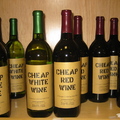
Egy kedves barátom, aki egy nagyobb multinacionális kiskerláncnál dolgozik, azt mesélte, hogy míg az amúgy sem túl drága, de náluk legborsosabb árú nem egész 800 Ft-os borból havonta tízes nagyságrendben tudnak eladni, addig a 199 Ft-ot kóstáló, címkéje tanúsága szerint…..

1999-ben, amikor a Fidesz akkor frissen pozícióját elfoglaló kormányfője elmondta az első évértékelőt, még maga sem gondolhatta biztosan, hogy ilyen súlyú politikai vagy inkább politikai-kommunikációs intézményt alkot. Józanésszel azt gondolhattuk volna, hogy ha gyökeret is ver…..

Az Európai Unió hétköznapi megfigyeléseink és élményeink tükrében leginkább valamiféle túlságosan bürokratikus szuperintézménynek tűnik, ahol a döntéshozókat az uborka görbületének problémái tarják lázban. Nem gondolom, hogy a magyar tévénézők többsége gyakran…..
Mandiner blog
A törökmézes madzag - Martonyi, Tóta W. és a Jobbik közös nevezője
2010.11.01 08:01:00
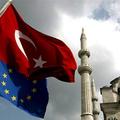
87 éves a török köztársaság, és ki tudja, lehet, hogy hamarosan átveszi a helyét a kicsit több mint egy hónapos Iszlám Együttműködés Rendszere. Az IER népszavazás útján jött létre, lényege a következő: Törökországban eddig az volt a helyzet, hogy a…..

Az első hír: Csoportosan, hivatalos személy ellen elkövetett erőszak miatt 10 hónap - két évre felfüggesztett - börtönbüntetésre és 300 ezer forint pénzbüntetésre ítélte elsőfokú döntésében a Pesti Központi Kerületi Bíróság Samu Tamás Gergő jobbikos országgyűlési…..
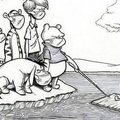
Vírusok mindig is voltak. A vírus támogatja az evolúciót, támogatja az alkalmazkodást, fejben és testben is kondícionál. Amíg nem tudta az ember, hogy mi az a vírus, addig nagyjából az erősebb élt túl, aki kibírta a betegséget. Ma már tudjuk, hogy létezik vírus, nagyjából…..

Frrisítve:A Homoszexualitás eredete, azaz nem betegség, nem devianciaSokszor felmerül az a kérdés, hogy heteroszexuális ember minek megy ki, ez nem az ő ügye, biztos valami liberális jogvédő geci, aki fontosnak érzi így magát. Nem, sajnos Magyarországon a meleg emberek ügye, nem…..
tündér ilona
2009.09.05 02:21:11
@Slotákia: rosszul teszed. Előbb olvasd el a II vh után Mo-al kötött békeszerződést, hogy ne csodálkozz, ha a rendőr összeszed Téged.
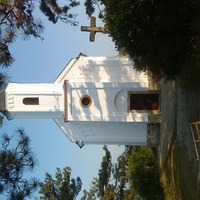
Korábbi megnyilvánulásomban már kifejtettem, hogy a magyar honfiúi kebel egyik legnagyobb fájdalma, hogy a szlovák államnak egynehány röpke év alatt sikerült ótvarabb, ergyább, redvásabb politikai elitet kigennyedzenie magából, mint nekünk ezer év alatt. A…..
tündér ilona
2009.08.25 00:05:20
@pelettye: Igen, pénteken ez történt. Ebből nem kell, h az következzék, h mindenki belerögzül ebbe és ez időtlen időkig így marad. Péntekre jön szombat. Aznap még keményebbek lettek a szavak. Viszont az idő folyik tovább. Azt akarom ebből kihozni, hogy egyének és közösségek élete is folyamat. Bukásokkal, fölemelkedésekkel teli.
Egyelőre ott tartunk, h mind a két fél, és azon belül is a különféle belföldi politikai szereplők főleg belpolitikailag használják ki az előáll(ítot)t helyzetet. Szavakkal csépelik hazai politikai ellenfeleiket, vagy hizlalják saját táboruk (szavazóik) lelkét. Amíg ez így marad, sok jóra nem számíthatunk, számíthattok odaáti magyarok. Hát igen, a külpolitika alakításába legtöbbször és a legtöbb országban jó adag belpolitikai játszma keveredik. Ebben az egész ügyben (plusz nyelvtörvény meg egyebek) egyelőre sok jóra nem számítok. Sajnos. Mégsem mondanám, hogy föl kellene adni a józan, kölcsönös tiszteleten nyugvó együttműködésre törekvést. Merthogy egyszerűen nincs más mindenki előnyére szolgáló út. Hogy ebből mikor lesz érezhető, kézzel fogható valami, azt nem tudom. Mert hiába ugrabugrálunk Bp-ről EU-val, meg EBESZ-szel, ilyen ügyben lehetnek szép szavak, de más aligha. Erőfelmutatásra meg erőfelmutatás lesz csakis a válasz. Mostanság. Mert ennek ez a logikája. Az egyik fél hülyesége a másik fél hülyeségét erősíti. Változás csakis úgy történhet, hogy apró gesztusokra lesznek apró gesztusok, amiből kinőhet vmi gyümölcsöző. Az is lehet, hogy jó időre berögzül ez a mostani fenekedés. Nem tudom.
Egyelőre ott tartunk, h mind a két fél, és azon belül is a különféle belföldi politikai szereplők főleg belpolitikailag használják ki az előáll(ítot)t helyzetet. Szavakkal csépelik hazai politikai ellenfeleiket, vagy hizlalják saját táboruk (szavazóik) lelkét. Amíg ez így marad, sok jóra nem számíthatunk, számíthattok odaáti magyarok. Hát igen, a külpolitika alakításába legtöbbször és a legtöbb országban jó adag belpolitikai játszma keveredik. Ebben az egész ügyben (plusz nyelvtörvény meg egyebek) egyelőre sok jóra nem számítok. Sajnos. Mégsem mondanám, hogy föl kellene adni a józan, kölcsönös tiszteleten nyugvó együttműködésre törekvést. Merthogy egyszerűen nincs más mindenki előnyére szolgáló út. Hogy ebből mikor lesz érezhető, kézzel fogható valami, azt nem tudom. Mert hiába ugrabugrálunk Bp-ről EU-val, meg EBESZ-szel, ilyen ügyben lehetnek szép szavak, de más aligha. Erőfelmutatásra meg erőfelmutatás lesz csakis a válasz. Mostanság. Mert ennek ez a logikája. Az egyik fél hülyesége a másik fél hülyeségét erősíti. Változás csakis úgy történhet, hogy apró gesztusokra lesznek apró gesztusok, amiből kinőhet vmi gyümölcsöző. Az is lehet, hogy jó időre berögzül ez a mostani fenekedés. Nem tudom.
tündér ilona
2009.08.25 00:11:29
@A Nép - Te vagy!: csak papíron volt élvonalbeli 1868-ban. Megvalósításában egyáltalán nem lett, volt az. Ezt írtam korábban is.
Robert William Seton-Watson (Wikipedia)
"His research for these articles took him to Hungary in 1906, and his discoveries there turned his sympathies against Hungary and in favor of then-subject peoples, the Slovaks, Romanians, and "Southern Slavs" (Yugoslavs). He learned Hungarian, Serbo-Croat and Czech, and in 1908 published his first major work, Racial Problems in Hungary."
Robert William Seton-Watson (Wikipedia)
"His research for these articles took him to Hungary in 1906, and his discoveries there turned his sympathies against Hungary and in favor of then-subject peoples, the Slovaks, Romanians, and "Southern Slavs" (Yugoslavs). He learned Hungarian, Serbo-Croat and Czech, and in 1908 published his first major work, Racial Problems in Hungary."
tündér ilona
2009.08.25 14:23:50
mond@pelettye: tán a magyar kormánynak szembe kéne köpnie őket? Minek?
Nem is törli. Próbálja menteni a menthetőt. Rohangál fűhöz-fához. A fű és a fa meg mosolyog a két óvodáson.
Belpol magyar:
Fidesz ennek kapcsán is üti a kormányt, és ígéri, h ő majdan ez ügyben is képes lesz elhozni (éppenséggel az általa lekicsinyelt EU-ból) az magyarok igazságát. Vicces.
Sólyom önjáró akaratos gyenge buldózer, ez ügyben is tojt a kormányzat releváns tényezőire, most nagyokat néz. Hányadik öngólja is ez?
A külügyminiszter romokat takarít és finoman kifejezi neheztelését Sólyomra.
Egy bolond százat csinált.
Ficót nem ő csinálta, az magától olyan, amilyen. Állami magyarosítás 7-800 évvel a nemzeti eszme keletkezése előtt?!
Miért csodálkozunk azon, hogy rajtunk röhög aki errefelé veti tekintetét? Tudod, onnan nézve (Berlin, Brüsszel, London, Stockholm...), akár tetszik ez nekünk, akár nem, egynek látszunk, összemosva magyar, szlovák, miegymás.
Nem is törli. Próbálja menteni a menthetőt. Rohangál fűhöz-fához. A fű és a fa meg mosolyog a két óvodáson.
Belpol magyar:
Fidesz ennek kapcsán is üti a kormányt, és ígéri, h ő majdan ez ügyben is képes lesz elhozni (éppenséggel az általa lekicsinyelt EU-ból) az magyarok igazságát. Vicces.
Sólyom önjáró akaratos gyenge buldózer, ez ügyben is tojt a kormányzat releváns tényezőire, most nagyokat néz. Hányadik öngólja is ez?
A külügyminiszter romokat takarít és finoman kifejezi neheztelését Sólyomra.
Egy bolond százat csinált.
Ficót nem ő csinálta, az magától olyan, amilyen. Állami magyarosítás 7-800 évvel a nemzeti eszme keletkezése előtt?!
Miért csodálkozunk azon, hogy rajtunk röhög aki errefelé veti tekintetét? Tudod, onnan nézve (Berlin, Brüsszel, London, Stockholm...), akár tetszik ez nekünk, akár nem, egynek látszunk, összemosva magyar, szlovák, miegymás.

"Magyarországon eddig kizárólag szocialista kormányok időszakában volt látványos neonáci felvonulás - emlékeztetett közleményében Kontrát Károly, az Országgyűlés rendészeti bizottságának fideszes tagja. A Fidesz kormányzása idején egyetlen ilyen rendezvényt sem…..
tündér ilona
2009.08.15 17:56:21
@mokas_gizi: "cigánybűnözés" szó azt fejezi ki, hogy vki azért követ le bűnt, mert cigánynak született. EZ BIZONY SZÍNTISZTA RASSZISTA SZÓHASZNÁLAT, VAGYIS RASSZIZMUS. Akár tetszik, akár nem. Nem kell ehhez nácinak lenni, így van anélkül is.
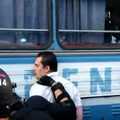
Mi éppen sörért voltunk, de Naményi kollega elkapta, ahogy Vona Gábort, a Jobbik elnökét tegnap előállították a rendőrök a „Hogyan csináljunk a gárdistákból Gandhit?” fedőnevű akció keretében. Tök exkluzív felvétel: ..
tündér ilona
2009.07.05 22:15:33
tündér ilona
2009.07.05 22:22:00
@TaTa86.:
Tudod, Tisztelt TaTa86, ha ilyen helyekre írogatsz, kiteszed magadat annak, hogy szólnak hozzád.
Nem teccik?
Egyet tehetsz: nem írsz ide.
Tudod, Tisztelt TaTa86, ha ilyen helyekre írogatsz, kiteszed magadat annak, hogy szólnak hozzád.
Nem teccik?
Egyet tehetsz: nem írsz ide.
tündér ilona
2009.07.05 22:28:19
@Viktus:
Kár, hogy nem érdekel.
Szólásszabadság egy és oszthatatlan. Olyan nincsen, hogy egyiknek van, a másiknak meg nincsen.
Kár, hogy nem érdekel.
Szólásszabadság egy és oszthatatlan. Olyan nincsen, hogy egyiknek van, a másiknak meg nincsen.
A Magyar Gárda ügyében, viharos gyorsasággal született meg a jogerős ítélet az ítélőtáblán, ám ami ebből kisült, az az ország szégyene.Az ítélet helybenhagyta a kifogásolt elsőfokú döntést, és ezzel jogerőssé vált: a Gárdát fel kell oszlatni, mivel felvonulásai…..

„Nem azért jöttem Magyarországra, hogy a Turullal dolgozzak. Véletlenül vettem észre a szobrot, amikor busszal a Budai hegyekbe tartottunk. Egyébként a Szoborpark szobraival foglalkoztam, ott kinn töltöttem minden időmet” – mondta az Indexnek Liane Lang brit…..
Belépve többet láthatsz. Itt beléphetsz

John Lukacs óva inti Orbán Viktort
John Lukacs: Paks Vobiscum? Nem: Pax Nobis!
Immár majdnem 67 éve, hogy elhagytam szülőhazámat. Azóta országom és nemzetem sorsa sokszor ragadta meg, szorította össze a szívemet, de a magyar politikával nem foglalkoztam, arról nem írtam.
| NOL| 2014. január 25. |173 komment letölt: 2014.01.26.14:35
nol.hu/lap/hetvege/20140125-paksvobiscum__nem__pax_nobis
Most, kilencvenéves koromban sem illik. De valami mégis erre késztet. Legalább két hosszú téli éjszakán ezen gondolkodtam.
A paksi orosz–magyar megállapodás kísértett.
Magyar újság hozzám nem jár. Magyar folyóiratok is csak ritkán. A Népszabadságot kattintom fel reggelenként egy-két percre. Tudomásom szerint ezt olvassa még most is sok magyar. Ezért küldöm soraimat oda. Hátha elér egy pár száz olvasót.
A mostani miniszterelnök úr évekig megtisztelt figyelmével és barátságával. Most mégis kötelességemnek tartom, hogy e sorokkal őfelé is irányítsam véleményemet. Már régen, immár több mint húsz éve ismerem az ő világnézeti hajlamait. Ő még 1989 előtt is, úgy látom, valahogy idegenkedett az úgynevezett „Nyugattól”, Nyugat-Európától és Angliától.
De most választóvonalhoz érkezett. Nemigen értek egyet azokkal, akik a paksi megállapodás gazdasági következményeiről beszélnek, spekulálnak. Olcsóbb lesz-e az áram vagy drágább tíz év múlva, mire a beruházás (ha egyáltalán) elkészül? Drága magyarjaim, ezt nem tudhatjuk, de ha tudnánk is, ez lényegtelen. A kutya farka alá való. Egy ország lényege, sorsa, jelleme nem gazdasági részlet. Egy ország lényegét az teszi, hogy kik vagyunk, hova tartozunk.
A történelem nemigen ismétlődik. A nemzeteké is csak ritkán, kisebb mértékben. És az ember jelleme változik a legkevésbé. Ez a jövőben a magyarság talán legmélyebb problémája. Nem csupán az elégtelen magyar önbizalom kérdése. (Bár az is!) Hanem az, hogy kik vagyunk, hová tartozunk, hová tartsunk?
A mi nagy Szent Istvánunk nemcsak egyedülálló szent volt, de nagy országalapító is. Több mint ezer esztendővel ezelőtt, amikor a Kárpátokat majdnem körülölelte az óriási bizánci görögkeleti birodalom. Ha István a hozzájuk való alkalmazkodást választja, az végtelenül sok rövid távú előnyt biztosított volna számára. De ő nem ezt tette: a római kereszténységet választotta, a pápai küldöttet, nyugati feleséget, „Európát” (bár ez a fogalom akkor még nem is létezett). Ez a választás formálta a magyar kereszténység hitét és jellemét ezer éven keresztül. Örök hálánk ezért!
A nyugati országok sokszor semmit vagy keveset tettek értünk. De mégis. Amikor a magyarság vezetői néha a „Keletet” választották, az majdnem mindig katasztrofálisnak bizonyult. A Magyarországot letipró zsarnokság eredője és lényege a közelmúltban sem a kommunizmus volt, hanem az orosz megszállás. A szörnyű második világháború végén a nagy Churchill, aki már tudta, hogy az oroszok foglalják el egész Magyarországot, ismételten elmondta Rooseveltnek (sajnos hiába), hogy Magyarország nem Kelet-, hanem Közép-Európához tartozik. A magyarság tömegei a Keletet vetették el 1956-ban és 1989-ben is.
Mit várhattunk, milyen jutalmat egy nagyorosz birodalomtól? Semmit. Széchenyi, Kossuth előre látták ezt. Az oroszokat el kell ismerni és tisztelni kell őket, mint azt távoli rokonaink, a bölcs finnek teszik. De mi nem az oroszokhoz tartozunk. A hozzájuk való alkalmazkodásunk sosem állhat törekvéseink központjában. Tiszteljük vívmányaikat, nagy művészeiket. De a magyar szellem, a magyar értelem, a magyar művészet és műveltség lélegzete nyugati. Nem orosz, de még csak nem is amerikai. Aki hozzánk szól, az – minden nagyságuk dacára – nem annyira Tolsztoj vagy Dosztojevszkij, hanem egy Dante, egy Shakespeare, egy Pascal, egy Goethe, egy Tocqueville. A Nyugat gyakran volt a keresztünk, de vállalnunk kell, mert az a csillagunk is. Becsüljük nagyorosz szomszédainkat, de nem szabad hozzájuk alkalmazkodnunk, odafelé sündörögni, mert az talán végleges teher lehet hosszú időre és a magyarság kárára válik.
1989 óta mi vagyunk a felelősek mindazért, amit mi választunk, amit teszünk, amit gondolunk. A magyar jellem és szellem nem lehet keleti. Pax Vobiscum! Ezek a régi latin mise utolsó szavai: Menjetek békében! De most Pax Nobis! Béke legyen a miénk!